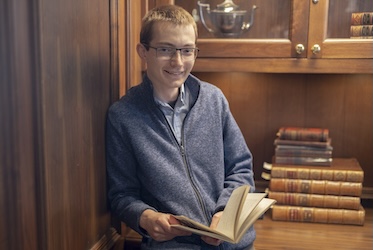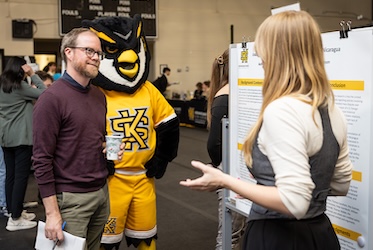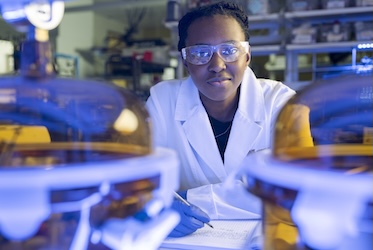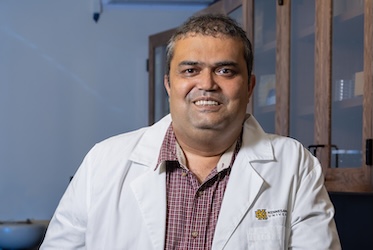
Anthropologist, sport scientist join forces for bone health study
KENNESAW, Ga. | Jul 13, 2020
One professor studies the bones of the deceased, the other studies the bones of the living. They will combine their expertise on a study about how exercise fosters bone health.
Alice Gooding, associate professor of anthropology at Kennesaw State University’s College of Humanities and Social Sciences and an avid runner, and Yuri Feito, associate professor of exercise science in KSU’s Wellstar College of Health and Human Services, met last year during a new summer research fellowship program in KSU’s Office of Research. Feito said that they quickly found that they had some things in common. Both earned their doctorates from the University of Tennessee at Knoxville and both have an interest in exercise science. Gooding said she also recognized the parallel between their areas of expertise.

Feito brought to the table a previous study on changes in strength, bone metabolism and body composition. The study showed a 5 percent increase in bone density among the participants over 16 weeks of high intensity fitness training. Gooding was intrigued.
“Most of the literature says you need at least six months of training in order to have a significant effect on positive bone mass,” Feito said. “This very small project with a bunch of generally healthy individuals showed a significant improvement in bone mineral content in just 16 weeks. When Professor Gooding and I started talking about that, her eyes lit up and she said, ‘We need to do something on this because this is pretty big.’”

The study will use both Feito’s and Gooding’s laboratories as well. Feito has a DEXA scanner that measures changes in weight and body composition as a result of changes on bone and muscle composition, while Gooding’s Bone Biomechanics Lab features a CT scanner.
“A large portion of the data will be split between our labs,” she said. “He’s collecting a lot of the biometric data in terms of weight and height and bone density with his DEXA scanner, and I’ll be collecting the geometric properties of the bone and some more intricate stuff in terms of bone density with the CT scanner in my lab.”
Gene Ray, associate professor of statistics in the College of Computer and Software Engineering, is the third member of the research team. Ray said he’s happy to help out with the study as it hits on a couple of areas of his expertise—data science and wellness.
“I’m trained as a biostatistician, so health and wellness are probably nearest to my heart,” he said. “Plus, I like to do things that have some sort of community impact or direct benefit. Those are typically the projects that I’m involved with.
“I’m just trying to provide the best methods to give insights and hopefully try to answer Dr. Feito’s and Dr. Gooding’s questions, but also inform them on other questions that may arise. So my role is as a translator to translate the data into meaningful information.”
Gooding said the size of the project required the participation of someone like Ray to exclusively deal with the numbers, which makes this a truly interdisciplinary project.
“The thing that we find the coolest is coming from completely different backgrounds, we have very common research goals,” she said. “We’re talking about three different colleges involved, and that is pretty unique from my perspective.”
– Dave Shelles
Related Stories

First-year Kennesaw State student, author recognized as versed local historian

Kennesaw State students to present research at Symposium of Student Scholars

Chemistry student engaged in sustainable catalyst research through Kennesaw State's First-Year Scholars program

Kennesaw State researchers awarded Department of Energy grant to investigate materials that boost energy-efficient technologies
A leader in innovative teaching and learning, Kennesaw State University offers undergraduate, graduate, and doctoral degrees to its more than 47,000 students. Kennesaw State is a member of the University System of Georgia with 11 academic colleges. The university’s vibrant campus culture, diverse population, strong global ties, and entrepreneurial spirit draw students from throughout the country and the world. Kennesaw State is a Carnegie-designated doctoral research institution (R2), placing it among an elite group of only 8 percent of U.S. colleges and universities with an R1 or R2 status. For more information, visit kennesaw.edu.















